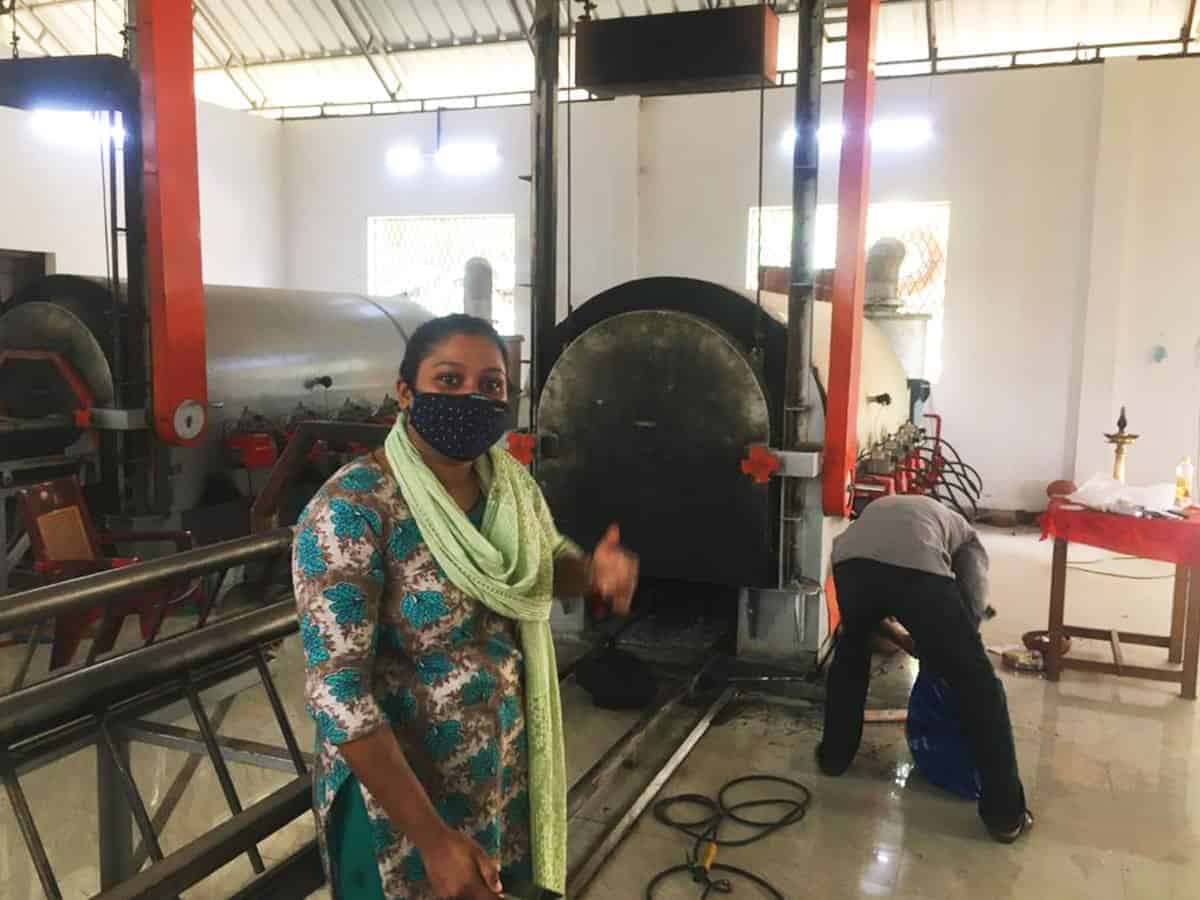Thiruvananthapuram: Subina Rahman is a 29-year-old Commerce graduate with a husband and an eight-year-old son and she is now doing a job which most people will shy away from. She is busy working as a cremator in a Hindu crematorium in Iringalakkuda, Thrissur district, Kerala.
With spiraling unemployment rate and getting a job next to impossible, Subina was on the lookout for one and came to know that there was a clerical one at the local Hindu Ezhava community controlled crematorium, SNBS samajam at Iringalakkuda and applied. She got the job and was keeping a register for day to day activities including the number of cremations that have taken place and the names and details of the dead.
However, she got bored and tried her hands at cremating the bodies, maybe a first Muslim woman to do so in Kerala.
Since Hindu customs don’t even allow women entry to crematoriums even during the cremation of their near and dear ones, the decision of Subina to become a cremator was not accepted well by the society. But she was firm and stuck to her decision. There were several criticisms from within the Muslim community that she was not supposed to do the work of a cremator in a Hindu crematorium but Subina was unfazed and continued with the job.
Subina says, “In pre-Covid days it used to be one or two dead bodies, but now during the second wave, we are cremating seven to eight bodies each day which is beyond the capacity of this crematorium.”
She adds, “It takes 2 hours to clear a body and get its ashes but now we are working 14 hours and still we are not able to complete it and have often postponed to the next day. It’s really sad and terrible situation as the number of deaths has increased in the second wave of the pandemic.”
The 29-year-old Muslim woman has to fight a battle against the society which includes close friends, class mates in school and colleges, close relatives and many other known people and none was supportive of her decision but only one person supported her and that was her husband, Kuzhikandathil Veetil Rahman.
She was however honest and straight when she said that she was doing this work to support her family and not as women empowerment. Her husband Rahman, a mason, was the only support of her family which includes her father, mother and an 8-year-old son.
Subina said that her father who was into cutting of trees had a fall and is bed ridden and her mother is a house wife. She said that she could marry her sister off with the money that she saved while working in the crematorium.
With barriers and walls are created between people in the name of religion, the example of Subina Rahman is one to be emulated even though she had admitted that this was her vocation.

